Home Remedies to Help Reduce Dandruff Naturally
By Dr. Raina N. Nahar +2 more

Get,

to manage your symptom
Get your,


4 Cr+ families
benefitted

OTP sent to 9988776655



You’ve successfully subscribed to receive
doctor-approved tips on
Whatsapp

Get ready to feel your best.

Hi There,
Download the PharmEasy App now!!


Register to Avail the Offer
Send OTPBy continuing, you agree with our Privacy Policy and Terms and Conditions

Hi There,
Sign up on PharmEasy now!!
Trusted by 4 crore+ families

OTP sent to 9988776655



You have unlocked 25% off on medicines




Code: NU25
By Dr. Raina N. Nahar +2 more
Table of Contents
Dandruff is also known as Seborrhoea which is an endogenous eczema of the oily areas of the scalp, and sometimes even the moustache, beard, and eyebrows. It is not a condition that can be permanently “cured”, in the traditional sense, nor is there a one-time solution. Rather, it is a chronic issue that tends to require ongoing management.
Home remedies may help with mild cases of dandruff. However, when the condition is severe, it is advised to seek medical treatment which can help manage this problem1.
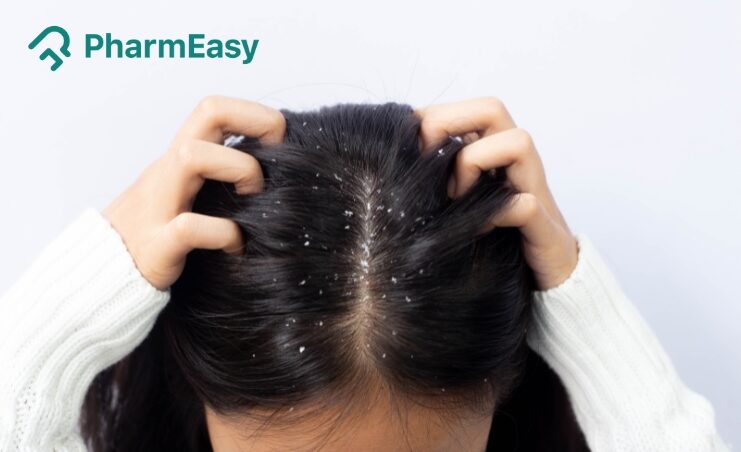
Dandruff is more than just an aesthetic concern, it’s often the result of complex underlying factors, including the presence of a common scalp fungus. One of the primary causes is a yeast-like fungus called Malassezia, which naturally exists on the scalp. However, when it begins to grow excessively, it can lead to irritation, scalp damage, and severe dryness. Here are some of the factors that may contribute to the development of dandruff1,2:
Dandruff can be of various types, each presenting with distinct characteristics and requiring tailored treatment approaches. These include3,4,5:
Understanding the type of dandruff you have is crucial for effective care. Consult a skin doctor (dermatologist) to identify the exact type of dandruff and get the right treatment for long-lasting relief.
| Signs | Causes | Risk Factors |
| Flaky skin from scalp, eyebrows, shoulders | Skin irritants Oily skin Dry skin Skin conditions like psoriasis, eczema | Age: typically occurs in young adults and continues to middle age (may be lifelong) |
| Itchiness on the scalp | Reaction to harsh chemicals in hair products | Sex: Males are more likely to develop dandruff than females |
| Scaly skin with a crusty appearance (particularly in infants) | Malassezia yeast infection | Existing illnesses: HIV, Parkinson’s and diseases affecting the immune system may all increase the risk of developing dandruff |
If you’re looking for a more natural way to manage dandruff, there are many natural dandruff home remedies that may be beneficial.
However, it’s important to understand that achieving noticeable results requires more than simply applying a mixture to your scalp. You will need to gather the right ingredients (many of which may already be in your kitchen) and combine them in the proper ratios. Once prepared, each mixture should be applied following a recommended method to ensure maximum benefit.
Natural treatments can be a great option for mild dandruff and as part of a regular scalp care routine. While they may not offer a permanent “cure,” they can significantly reduce the visible signs of dandruff and help restore your confidence by keeping your scalp clean, calm, and flake-free6. If you’re wondering how to get rid of dandruff naturally, let us understand how regular care can maintain and keep the scalp inflammation free for longer.
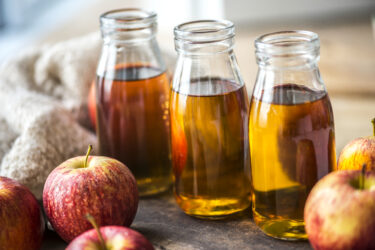
ACV is said to be one of the best natural remedies to treat severe dandruff. However, there is a prescribed way in which you need to prepare the paste. Here are some easy steps you need to know for preparing ACV for dandruff4,5.
Preparation of ACV Solution:
Note: You should not excessively use ACV on your hair; daily application is not recommended. You may find it beneficial to use it once every two days for dandruff but ensure to seek prior guidance from a dermatologist.
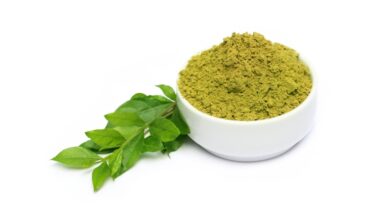
You may benefit from using henna for dandruff. Henna helps clean the scalp and softens hair. Here is how you can prepare the henna mix for your hair4.
Preparation of the Henna Mixture:
Henna needs to be prepared the right way and this mix has a prescribed manner in which it needs to be prepared so make sure you talk to a doctor before using this for your hair. A general guideline is as follows:
Note: Henna is natural and this is one simple way that may help you get rid of dandruff..
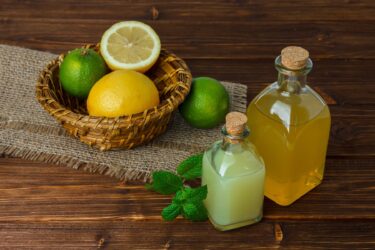
Coconut oil helps keep the hair nourished, and when this is mixed with a little lemon juice, it may help in reducing dandruff. Follow these simple tips with the advice of a dermatologist, to help with dandruff4,8.
Preparation of Coconut Oil with Lemon:
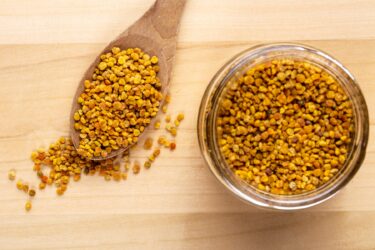
Fenugreek seeds or methi seeds are used to help reduce dandruff4,8.
Preparation of the Fenugreek Seeds Mixture:
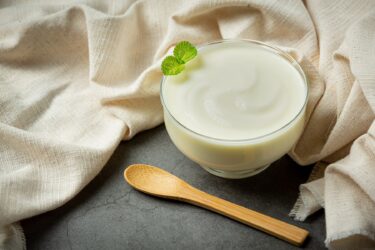
Curd applied to your hair may be effective to help with dandruff4.
Preparation of Curd for Dandruff:
Here are some easy tips to help with dandruff using curd. Here is how you do it.
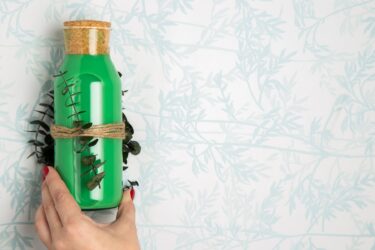
Neem has beneficial properties that may help with dandruff. This herb is found in most shampoos as one of the main ingredients. If you’re seeking an effective dandruff treatment at home, incorporating neem into your routine can be a natural and convenient dandruff solution10.
Preparation of Neem Juice:
Here is how you prepare neem juice mix before applying it to your hair and this will help cure dandruff.
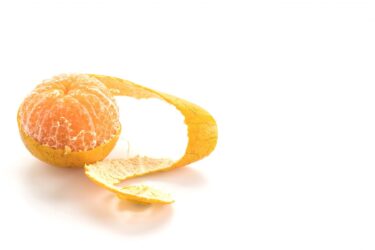
Orange peel is said to work well as a very good remedy for treating dandruff at home. But you need to keep in mind as for how you need to prepare this mix. Orange peel is said to contain calcium, magnesium, vitamin A and dietary fibres which are good for your body. Orange peel can be made as a mixture in the following manner and applied to your scalp and hair to help with dandruff4.
Preparation of the Orange Peel Mixture:
Note: Use it for least thrice a week to see results.
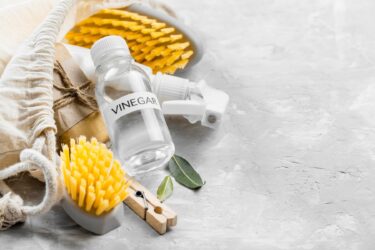
Vinegar has medicinal properties that can help remove fungus and this can be seen as an easy remedy to get rid of dandruff the easy way. This also helps in treating various skin related problems like acne and itchiness in the scalp4.
Preparation of the Vinegar Mixture:
Here are some easy steps that you need to keep in mind while preparing vinegar mix to get rid of dandruff.
Note: You can use this in the morning before you apply shampoo in your hair. Vinegar will help reduce the dryness and remove the itchiness that you are facing.
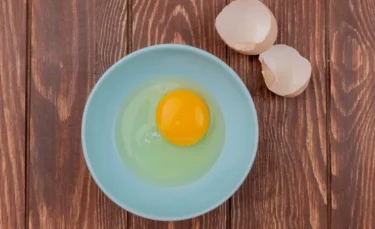
Egg yolk contains biotin which is a vitamin that helps with dandruff. Egg yolks can act as conditioners for your hair that can make it healthier9. For those seeking effective home remedies for dandruff, incorporating egg yolk into a hair care routine may provide a natural and nourishing solution.
Preparation of the Egg Yolk Mixture:
In order to prepare the egg yolk mixture, you will have to remove the white layer that surrounds the yolk. Always remember that the yolk is more beneficial than the white layer that surrounds it. Here are some simple steps that you need to follow when you are making egg yolks.
Note: You can follow this method to help with dandruff in the morning while having a bath or anytime as per your bath schedule. You may need to do this thrice a week to see results.
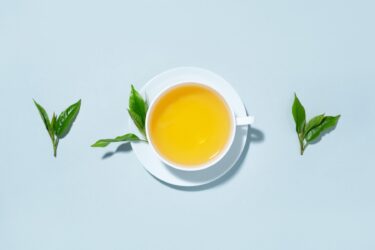
Green tea has antifungal properties and it is an antioxidant that can restore the health of the scalp7.
Preparation of Green Tea:
Note: This can be followed in the mornings when bathing.
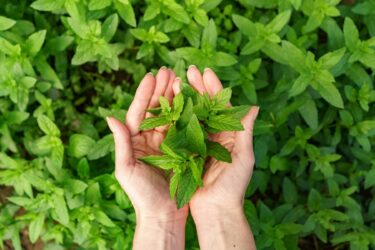
Basil leaves have antifungal and antibacterial properties that can help with dandruff. These leaves can also help your scalp become strong and stay healthy4,8.
Preparation of the Basil Leaves Paste:
Note: You need to incorporate this to your hair care routine as recommended by a doctor to observe results.
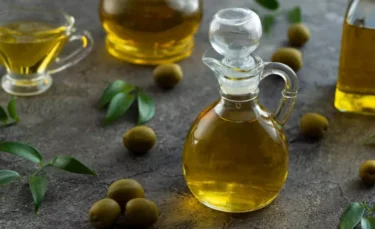
Olive oil may help strengthen the scalp, promoting overall hair health4,8.
Preparation of Olive Oil:
Note: You can also apply some olive oil before you go to bed. Wrap your hair with a towel and let it absorb overnight and wash the hair in the morning with shampoo.
Mouthwash have antifungal properties that can fight the yeast responsible for preventing the growth of this yeast8.
Preparation of the Mouthwash Solution:
Note: You can do this in the mornings during your shower.
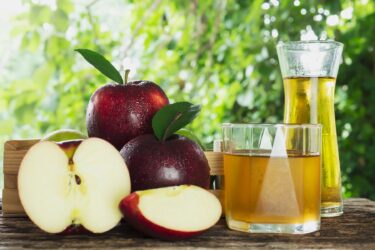
Banana and ACV may help with dandruff. This is because bananas are rich in vitamin B which helps in improving blood circulation and keeps skin healthy, while, ACV is known for its fungicidal properties4.
Preparing the Mixture of Banana with ACV:
Note: You can use this method early mornings or in the night before having your shower.
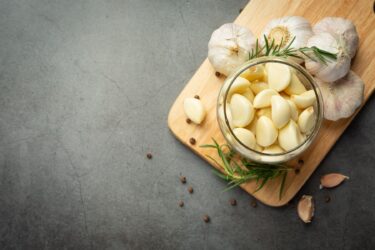
Garlic has antifungal properties that may help reduce certain microbes that are responsible for causing dandruff4.
Preparation of the Garlic Paste:
Note: You may find it helpful to use this natural method for dandruff by using it in the mornings or in the night before you have a shower.
Simple dietary modifications can play an important role in reducing the appearance of dandruff. Ensure to consult a doctor before making any changes to your diet4.
Some dietary changes include:
Also Read: Natural Home Remedies for Open Pores
Getting rid of dandruff can be a burden, however, if you follow these simple steps on a day-to-day basis, you may find it helpful1.
Correct diagnosis and treatment by a dermatologist are crucial, as dandruff is often mistaken for other conditions such as psoriasis, which results from a fungal infection on the scalp. The use of appropriate antifungal shampoos or lotions recommended by a dermatologist is necessary for addressing dandruff, as home remedies alone may be inadequate.
Dr. Arpit Verma, MBBS, MD (Pharmacology)
Also Read: 8 Best Anti-Aging Foods to Look Younger
Dandruff can be effectively managed with the right care, whether through natural remedies or medical treatment. Understanding your scalp type and the right treatment is key to long-term relief and healthier hair. Always consult a doctor before trying anything new to make sure it is right for your situation.
Also Read: Effective Home Remedies For Frizzy Hair
Yes. While often overlooked, a scalp brush can help reduce dandruff in several ways:
– Removes buildup: Helps eliminate excess oil and dead skin cells that contribute to dandruff. Use the brush in small, circular motions to avoid tangling.
– Enhances shampoo effectiveness: Using a scalp brush while shampooing can improve cleansing and product absorption.
– Stimulates the scalp: Regular use (2 to 3 times per week) can improve blood circulation, promote hair growth, and strengthen hair shafts.
Dandruff can occur at any time of the year, but it is more common during the winter months when the scalp becomes itchy and dry, and itching can lead to flakes that build up and cause dandruff. To manage it, use a moisturising shampoo 2 to times a week, oil your scalp, and avoid heat styling, which can further dry out the scalp.
No, dandruff is not contagious. It is a non-infectious scalp condition caused by factors like genetics, an oily scalp, dry skin, or sensitivity to hair care products.
Yes. Stress doesn’t directly cause dandruff but can worsen existing scalp conditions by affecting the immune system and hormone levels. Managing stress can help improve scalp health.
Dandruff does not directly cause hair loss, untreated severe dandruff may lead to scalp inflammation, which can contribute to temporary hair shedding.
Dandruff can be effectively reduced through various methods:
– Using anti-dandruff shampoos containing active ingredients like pyrithione, zinc, or ketoconazole.
– Regularly washing the hair with a gentle shampoo to keep the scalp clean.
– Managing stress levels, as stress can worsen dandruff.
– Identifying and addressing any underlying scalp conditions.
– Practising good scalp hygiene and avoiding scratching to prevent scalp irritation.
Yes, curd can help remove dandruff. Its natural properties, such as lactic acid and probiotics, help soothe the scalp, reduce itchiness, and control dandruff when applied regularly as a hair mask or treatment.
There is no direct evidence linking dandruff to acne. Dandruff is primarily a scalp condition, while acne is associated with the skin’s oil glands and hair follicles. It’s advisable to consult a dermatologist for personalised advice.
There is no scientific evidence supporting the idea that dandruff causes the premature greying of hair. Greying is primarily influenced by genetics and age-related factors, while dandruff is a scalp condition related to the overgrowth of yeast and shedding of skin cells.
No, dandruff itself does not cause lice. Lice are typically spread through direct head-to-head contact or by sharing personal items like combs and hats. While dandruff and lice both affect the scalp, they have different causes and require distinct treatments.
Yes, dandruff can cause itching. The flakes and irritation associated with dandruff can lead to an itchy scalp, causing discomfort and the urge to scratch.
1. Australia H. Dandruff [Internet]. www.healthdirect.gov.au. 2023 [cited 2025 May 5]. Available from: https://www.healthdirect.gov.au/dandruff
2. Services D of H & H. Dandruff and itching scalp [Internet]. www.betterhealth.vic.gov.au. [cited 2025 May 5]. Available from: https://www.betterhealth.vic.gov.au/health/conditionsandtreatments/dandruff-and-itching-scalp
3. (PDF) AN OVERVIEW OF DANDRUFF AND NOVEL FORMULATIONS AS A TREATMENT STRATEGY. ResearchGate [Internet]. [cited 2025 May 5]; Available from: https://www.researchgate.net/publication/322931819_AN_OVERVIEW_OF_DANDRUFF_AND_NOVEL_FORMULATIONS_AS_A_TREATMENT_STRATEGY
4. Kronika Journal – ISSN:0023-4923 || Scopus Indexed Journal [Internet]. Kronika.ac. 2023 [cited 2025 May 5]. Available from: https://kronika.ac/wp-content/uploads/5-KKJ2356.pdf
5. Staff Dermatologists org. How to Get Rid of Dandruff: An Expert Guide — Dermatologists.org [Internet]. Dermatologists.org. 2023 [cited 2025 May 5]. Available from: https://www.dermatologists.org/dandruff/
6. Zaid AN, Jaradat NA, Eid AM, Al Zabadi H, Alkaiyat A, Darwish SA. Ethnopharmacological survey of home remedies used for treatment of hair and scalp and their methods of preparation in the West Bank-Palestine. BMC Complementary and Alternative Medicine [Internet]. 2017 Jul 5 [cited 2025 May 5];17(1). Available from: https://pmc.ncbi.nlm.nih.gov/articles/PMC5499037/
7. Chanchanok Nualsri, Nattaya Lourith, Mayuree Kanlayavattanakul. Development and clinical evaluation of green tea hair tonic for greasy scalp treatment. Journal of Cosmetic Science [Internet]. 2016 May [cited 2025 May 5];67(3):161–6. Available from: https://www.researchgate.net/publication/308149951_Development_and_clinical_evaluation_of_green_tea_hair_tonic_for_greasy_scalp_treatment
8. Gamage DGND, Dharmadasa RM, Abeysinghe DC, Wijesekara RGS, Prathapasinghe GA, Someya T. Ethnopharmacological Survey on Medicinal Plants Used for Cosmetic Treatments in Traditional and Ayurveda Systems of Medicine in Sri Lanka. Ullah R, editor. Evidence-Based Complementary and Alternative Medicine [Internet]. 2021 Jun 26 [cited 2025 May 5];2021:1–15. Available from: https://pmc.ncbi.nlm.nih.gov/articles/PMC8257331/
9. Jung J, Kwon KH. Rethinking of positive effects of eggs on hair in East Asia. Journal of Cosmetic Dermatology [Internet]. 2022 Nov 14 [cited 2025 May 5]; Available from: https://www.researchgate.net/publication/364366473_Rethinking_of_Positive_Effects_of_Eggs_on_Hair_in_East_Asia_A_Critical_Review
10. Sang SH, Gabriel Akyirem Akuwoah, Kai Bin Liew, Lee SK, Keng JW, Lee SK, et al. Natural alternatives from your garden for hair care: Revisiting the benefits of tropical herbs. Heliyon [Internet]. 2023 Nov 1 [cited 2025 May 5];9(11):e21876–6. Available from: https://www.ncbi.nlm.nih.gov/pmc/articles/PMC10685248/#:~:text=In%20recent%20years%2C%20there%20is
Disclaimer: The information provided here is for educational/awareness purposes only and is not intended to be a substitute for medical treatment by a healthcare professional and should not be relied upon to diagnose or treat any medical condition. The reader should consult a registered medical practitioner to determine the appropriateness of the information and before consuming any medication. PharmEasy does not provide any guarantee or warranty (express or implied) regarding the accuracy, adequacy, completeness, legality, reliability or usefulness of the information; and disclaims any liability arising thereof.
Comments

Leave your comment...
You may also like
Comments